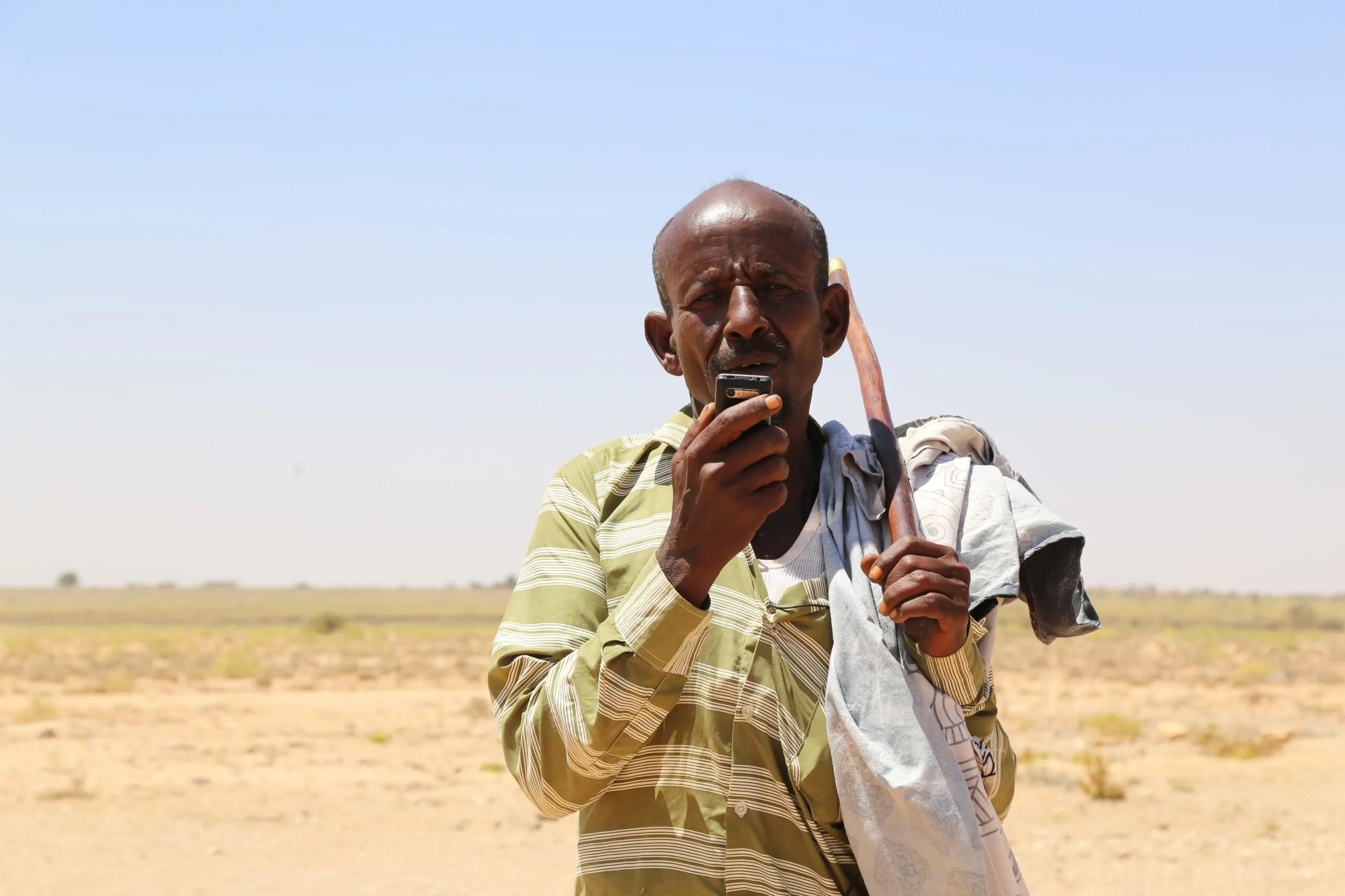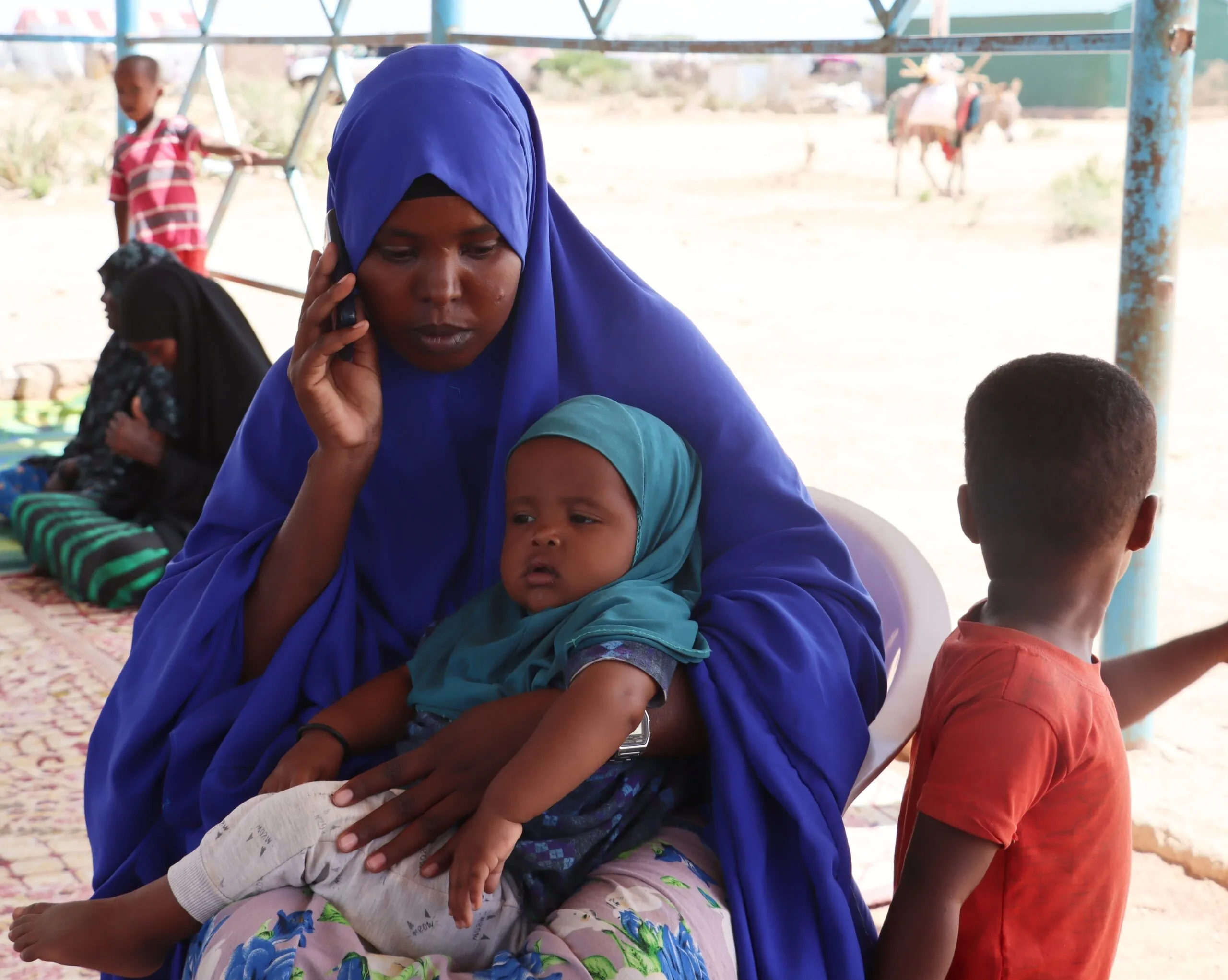It’s a country devastated by climatic shocks and political conflicts, with 6.9 million people in dire need of humanitarian assistance. One in five Somalis do not have enough to eat. 1.7 million children face acute malnutrition. More than half of the population is now water insecure. And yet, despite these challenges to basic survival, the country is finding ways to use technology to keep ahead of disaster.
From central Afghanistan to coastal Alabama, humanitarian organizations are trying to figure out the best ways to reach people living in areas that are difficult to access, either because of terrain or political insecurity. CARE Somalia has come up with a unique solution to this “last mile” problem through mobile-money technology, and, in particular, voice recognition technology.
A new way to deliver “cash”
Somalia’s financial ecosystem is dominated by mobile money. 86 percent of people fifteen and older have access to mobile phones, and 73 percent of them use mobile money transfer.
CARE, in collaboration with Global System for Mobile Communications, and Somali telecommunication companies Golis and Telesom, introduced a voice identification (Voice-ID) verification system to disburse cash assistance.
The participants in this program are primarily displaced and those affected by political conflicts and natural calamities, such as droughts and floods.
This initiative enabled CARE to use a Beneficiary Biometric Registration system from registration to verification. The system now allows for more accurate and accountable verification of end-users’ identity than previous methods which did not have Voice-ID verification.
In other words, the new system ensures that the money goes to the right people.



